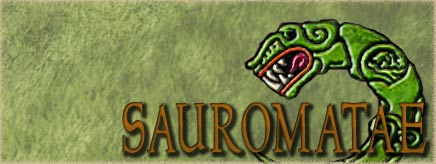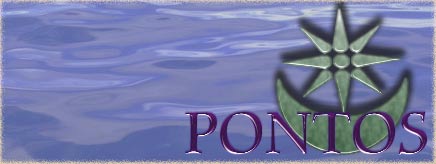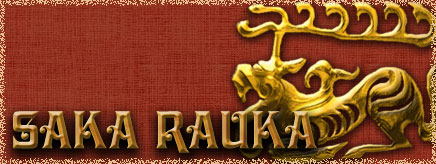So finally here we are:
This is a multiple players alternate history, where the decisions are made primarily by posting here, but also to some extent by PM. The first turn the players will also need to do research about their factions, if needed with each others' assistance. The outcome of actions is decided at the end of each chapter/turn. Rules and more details about the system is listed at the bottom of this post.
PROLOGUE
The year is 1603. After the defeat of the Armada and the de facto independence of the Netherlands, Spain is no longer the major power in Europe. England has through diplomacy and warfare successfully prevented many invasions and with it's colonies and fleet become a power of considerable importance after a century of internal problems. The newly independent Netherlands have developed very effective trade and is a flourishing nation with an untraditional power structure, open-mindedness to trade and an effective fleet, but with limited offensive capabilities. The Holy roman empire is comparatively stable, even though many external threats are in the process of building up. Russia has gone from being a number of smaller principalities occupied by mongols to, under the leadership of Muscovy, become a large empire intent on expanding further west. The Ottoman empire might be expanding well inland, but their naval domination has been limited since the battle of Lepanto many decades earlier.
It is a time when many nations are about equal in power, but also a time of instability where the strategies of the leaders could have huge consequences and make one nation insignificant, while another becomes an empire.
Map of 1600 AD: http://www.euratlas.com/big/big1600.htm
Tasks for this turn:
1. first choose a faction to play as (England, France, HRE, Poland, Spain, Sweden). After choosing faction, make a post in this thread to reserve that faction. The first who posts that he wants a certain faction gets that faction.
2. make some research about your faction. This information will be available to all players, and is later to be used to plan your strategies. The knowledge about what happened after 1603 is supposed to be used to better understand the present situation in 1603, not to be abused as hindsight - I'll deliberately lay out the story in a way that prevents hindsight that couldn't have been known at the time from having any effect (after the first chapters it'll become clear what I mean by this). Things to research:
a. name of your leader, and of the living heirs of your leader
b. your current alliances in 1603. Look at which alliances were broken in the coming 50 years and why, to try and find information about the nature and strength of the alliances at this time
c. current pacts/leagues (with pact I mean a bunch of nations all in alliance with each others, the pacts must also be public whereas alliances can be of a more secret character)
d. current wars that your nation is engaged in
e. regions that historically rebelled against your nation during the period 1603 to around 1648, and why. Did any of the rebellions happen at critical times during wars with outside nations, or did the rebellions for other reasons have greater effect than their military strength alone would imply?
f. a list of the major military campaigns, crucial economical conflicts and other major events during the period 1603 to around 1648 for your nation
g. in 1603, how is your army organized? how many men are available through conscription? how many men constitute a standing army? what equipment and training have they got? how is the quality of the artillery? and how did these things change in the coming 50 years?
h. how well is your nation doing economically? are you in debt or is the economy flourishing? which are the key strategic locations that gives you income? tax, trade routes/tolls, farming or industries? How many people live in your realm?
i. which countries are your major trading partners at this time and what products do they buy/sell from/to you?
j. how centralized is rule? what is your role as leader? military defender of your people? reformer? if your rule isn't centralized, is local unhappiness most directed towards you or the local rulers?
k. what is your leader's religion? what is the stance of different religions in your nation - acceptance, tolerance, non-tolerance or persecution?
l. what's the social situation for farmers, workers etc.? are they in a position to rebel over their social situations?
m. are there any provinces of your nation that are eager to break off and form an own country? i.e. Portugal for Spain etc.
PLAYERS
Here the players commanding the nations will be listed for reference when during play you need to contact them by PM for diplomatic deals.
England - Fisherking
France - Swordsmaster
HRE and Austria - Arjos
Spain - Prince Cobra
Netherlands - El Barto
Poland - Free (formally Csargo)
Sweden - Free (Formally autolycos)
RULES/INFO ABOUT HOW THE INTERACTIVE WORKS
- Your objectives: the objective is to achieve as much as possible in all these fields: conquest of provinces, conquest of strategic positions, strengthening the economy and controlling trade, having an appearance of strength and determination to outside threats by successfully defending and counter-attacking aggressors, have a good diplomatic rumor, and help spread whatever religion you choose. All these factors will be added together and the factions which achieved most in all these aspects will be winners by the end of the game.
- First turn - in the prologue turn you'll not make any decisions but only do research about your faction.
- How to play - every turn, I'll list questions about the most relevant matters for the player to decide about. However, each turn it's also possible to decide about things that aren't listed under that turn. Examples of things that you can decide are listed here for reference during the game:
* thing made publicly in this thread:
a. declaring war
b. hiring mercenaries
c. propaganda - if your nation wants to use propaganda actions it's posted as a public proclamation in the public thread. This can also be a general call for, say "the Catholic cause" etc. but also actions for your own population. Normal actions that aren't explicit propaganda can also have propaganda effects.
d. choosing stance on religion, and the leader's religion - this will affect relations with the pope, relations with other countries, relations with local rulers etc.
* things made by sending a PM to me that turn (sometimes this information risks to leak out to the public forum):
e. reorganizing your army - this is made by PM, but info will leak out
f. diplomatic discussions - it'll always leak out that a meeting has taken place, but very seldom what was said during the meeting, unless the two parts wish to make an official proclamation as result of the meeting. Because some of the diplomatic correspondence can leak out, try to make the PMs with historical phrasing, and it's also a good reason to, even if you're planning on backstabbing, not expressing such things too explicitly in the PMs... The diplomatic discussion in a turn may only be carried out as a series of max 3 PMs, i.e. 1. offer, 2. counter-offer/accept/decline, 3. accept/decline/counter-offer to consider for next turn/suggest discussions continue next turn. The reason for this rule is to make the discussion fast enough to not delay chapters, but also to simulate some of the difficulties of diplomatic discussion and not make the diplomacy an overly effective tool. The PMs from the correspondence should be sent to me by PM each turn so I know which deals took place so I can determine the outcome of the turn.
g. choosing where to launch offensives and which tactics and key targets to use - you're allowed make very complex strategies with conditional plans and diversions etc. Just remember it must be logistically feasible within the length of the chapter. Also remember that pushing soldiers too hard can result in undisciplined behavior, mutiny and desertion etc.
h. starting war without formal declaration
i. determining what to do about rebels - you decide which and how many troops, what tactics they are to use etc. I'll ask more specific questions and give the suitable player options for how to act when a rebellion takes place
j. choosing whether to use your own leader in combat - using the leader in combat can boost morale, but also keeps him away from home which may be tempting to some rebels, and it also puts him at the risk of dying in action. If the leader has gone to the front, the other nations will know it before long through hints in the public thread (this thread).
* other decisions:
k. you can decide about almost anything you can think of that isn't very historically unlikely, say send away mercenaries without pay, choose whether to kill prisoners of war or not, etc. etc. Those decisions can be sent to me by PM. Bear in mind that every character affected by your decisions has some form of power which he can use against you.










 Reply With Quote
Reply With Quote











Bookmarks